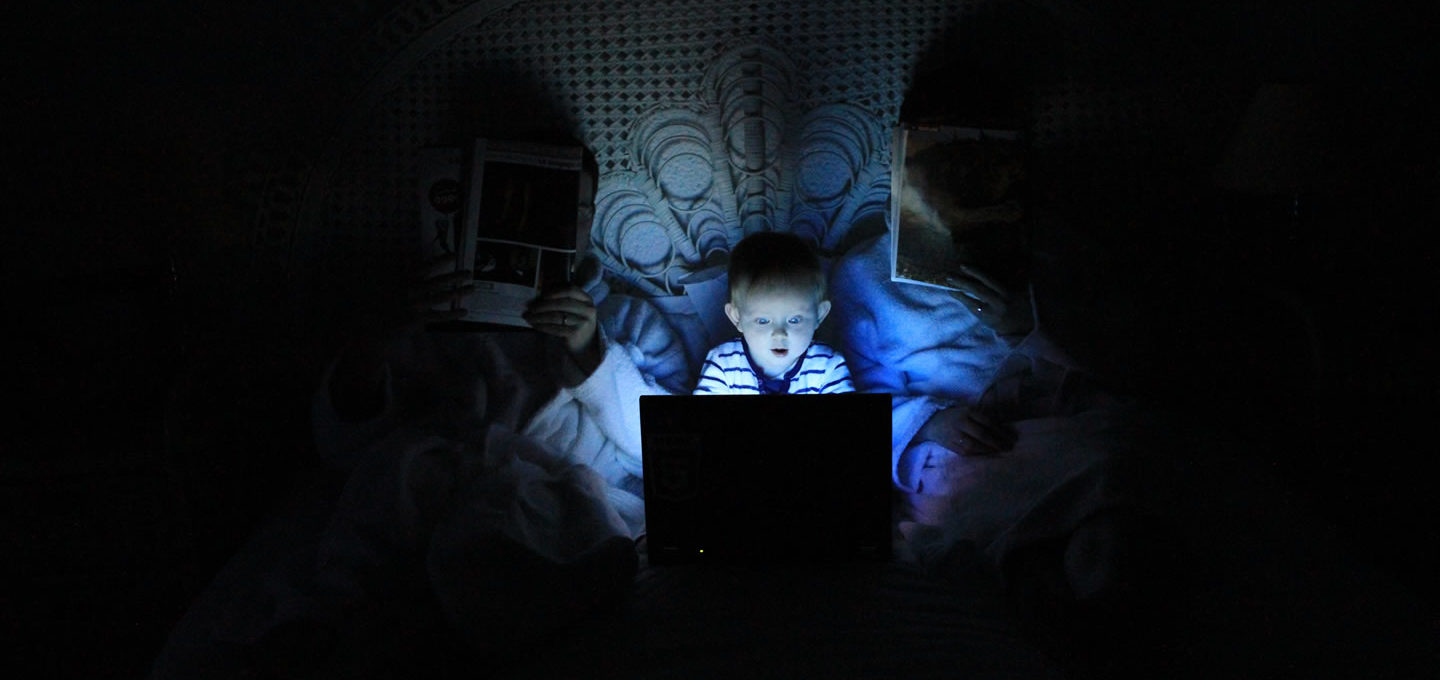A world without our beloved technology is hard to contemplate. Where would we be without our smartphones, our tablets, our laptops and HD televisions?
The technological revolution has had a profound effect on every aspect of our lives. Whether you’re tech enthusiast or a technophobe, one thing we can all agree on is that this are interesting times in which we live.
So interesting that sometimes it’s hard to get to sleep at night. In fact, as a society we have never slept worse. 1 in 3 of us will report suffering from insomnia at some stage, and chances are high that the rest of us are getting nowhere near our doctor-recommended 8 hours a night.
Our relationship with technology has certainly played a role in this – we love our smartphones so much we often take them to bed with us. So too our laptops and tablets.
Unfortunately for our sleep, study after study has shown that the blue light emitted by our screens keeps us awake. Below we look at exactly how and why blue light harms our sleep and what can be done…
How does blue light keep us awake?
The blue light emitted by our screens plays a role in halting the production of melatonin in our body.
Melatonin is a hormone produced by the pea-sized pineal gland in the middle of your brain and it is important as it’s the hormone that controls our circadian rhythms (our body clock) and tells us when it’s time for bed.
When working correctly our bodies produce more melatonin at night and less during the day. Production usually increases in the evening once the sun has set. The more melatonin in the body the sleepier and when reduced it makes it harder to fall and stay asleep.
If individuals have trouble sleeping doctors will sometimes prescribe melatonin supplements. These can be incredibly useful but like any prescription drug they can be dangerous when abused.
For more information on the pros and cons of melatonin check out this useful guide from the Sleep Advisor team.
Why does blue light have this effect?
The world has transformed at a far faster pace than the human mind has evolved. So while we live in a world on the brink of self-driving cars and artificial intelligence, our brains are for want of a better description – still a bit caveman.
This is especially true when it comes to light. As a hunter-gather we evolved to rise with the first light and to sleep when night fell. This was the natural pattern for millenia.
The sunlight at dawn contains more blue light than dusk, which is a warmer red light. Hence we evolved to associate blue light with alertness and red, warmer light with sleep.
It’s for this reason our circadian rhythms are controlled by light and why the amount of melatonin the body produces increases later in the day as the amount of natural blue light falls.
Yet in today’s society, many of us work hours so long that in the winter months we leave the house before dawn and return after dark. Add to that the amount of artificial light we digest, and it’s no surprise that our brains struggle to keep up.
Evolution is a slow process. It took almost six million years for humans to evolve from our ape-like ancestors into modern homo-sapiens. Edison only patented the lightbulb in 1879, that’s less than 150 years ago.
The solution
The solution is to reduce your exposure to blue light an hour or so before you head to bed. This will enable your brain to better wind down and produce sufficient melatonin for you to get a good night’s sleep. This means banning screens from your bedroom at night for a start. It would also be sensible to use strong curtains or blackout blinds, and install dimmer switches on all the lights in your home.
If you 100% need to use your phone, tablet or laptop right up until your bedtime then their are number of techniques to reduce the impact of the blue light.
One way is to hunt down a physical filter to attached over the screen that will alter the screen temperature of the device to a warmer colour, thereby filtering out the blue light and helping you sleep.
Far easier is to use app to do the same job. An increasing number of these are reaching the market. While, newer versions of some devices will have settings in their display settings inbuilt that when activated will automatically adjust your screen’s temperature in accordance with the time of day.
While these measures will help to an extant their impact is still uncertain and none will be as effective as simply switching off your screens and giving yourself wind-down time before bed.
Over-stimulation of your brain caused by screens is not just due to the light, but also the interactive nature of these devices and the diet of content you’re consuming – but that’s a problem for another day…
Photograph by Ludovic Toinel

